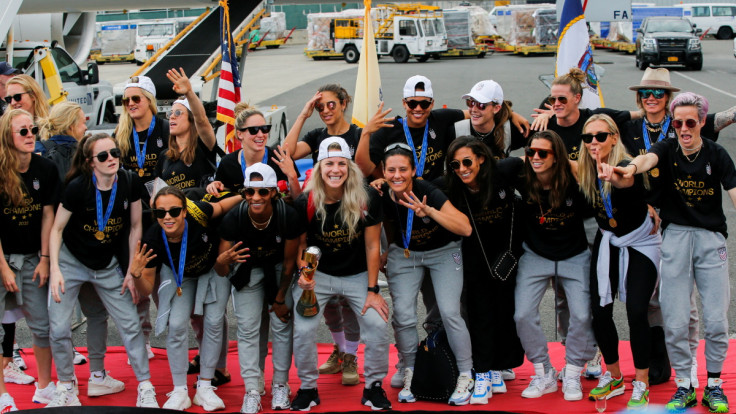FIFA Women's World Cup Quarter Finals is predicted to earn the retail and hospitality sector £145 million
A recent report anticipates a significant surge in spending, projected to reach £145 million, as the FIFA Women's World Cup 2023 Quarter Finals kick off on August 11th.

Sports have an unrivalled power to bring people from all over the world together, kindling not only enthusiasm but also significant economic potential.
A recently published report forecasts a substantial increase in retail and hotel spending, estimated to reach £145 million, coinciding with the commencement of the FIFA Women's World Cup 2023 Quarter Finals, on Friday, August 11th. According to the Women's World Cup 2023 Spending Report VoucherCodes.co.uk, 7.1 million British fans are expected to engage in the tournament, with a significant portion tuning in from their homes.
Of the audience, 84.5 per cent (approximately six million people) are expected to opt for the convenience of home viewing, primarily due to the time zone disparity resulting from the event's hosting in Australia and New Zealand. As a consequence, just 1.9 million people are predicted to enjoy the Quarter Final matches at local pubs, clubs, or restaurants.
With this in mind, retail sales will vastly outnumber spending in hospitality locations during this period. Customers are expected to spend a total of £116.3 million at their local supermarkets and convenience stores during the Quarter Final stage. Food and drink account for the lion's share of total spending, accounting for £92.9 million.
Meanwhile, the report revealed that Hospitality venues are expected to reap the largest number of sales during the championship, with spending expected to reach £28.8 million. This is most likely because England's game is at 11.30 am on a Saturday when more consumers are available to visit their local hospitality venues. To break this down further, it is projected that £16.1 million will be spent on drinks and £12.8m on meals.
The report further revealed that retailers will also experience an increase in sales outside of fast-moving consumer goods (FMCG). Supportive customers are expected to spend £11 million on athletics, £4.5 million on electricals, £4.1 million on souvenirs, and £3.9 million on decorations as supporters prepare to rally behind the national team.
"Although the cost-of-living crisis and early kick-off times have led to consumers exercising caution with their money, the hospitality sector will be encouraged to see 1.9 million consumers are still planning to soak up the atmosphere of the Quarter Finals from their local pubs and bars," said Maureen McDonagh, SVP International & Managing Director at VoucherCodes.
McDonagh recommends introducing value-driven initiatives, such as multi-game packages that offer discounts on food and drinks, during the approaching Semi-Finals, set to begin on Tuesday, August 16th.
McDonagh further emphasised the significance of catering to the burgeoning family following in women's football. Creating family-friendly environments and offering economical dining options for both adults and children are strategies she suggests to attract more visitors to hospitality venues, she added.
Meanwhile, sportswear companies are facing scrutiny for insufficient production of women's soccer footwear. Despite their claims of investing in women's-fit models, retailers may be hesitant to introduce them due to an incomplete grasp of the substantial revenue potential. The absence of specialised soccer footwear for women has raised concerns, particularly as notable players like England's Lionesses are sidelined due to anterior cruciate ligament (ACL) injuries.
According to a recent survey sponsored by soccer's European Club Association, up to 82 per cent of female players in Europe are uncomfortable wearing boots.
Conservative MP Caroline Nokes, Leader of the Women and Equalities Committee in the British Parliament, said: "Football brands are making welcome progress in supporting the needs of female football players."
She, however, said when it comes to football boots, major retailers give women and girls little attention.
The committee's inquiries directed at prominent manufacturers, including Adidas, Nike, Puma and Umbro, question the limited availability of football boots specifically designed for women and girls.
While manufacturers claim to be producing women-only boots, reluctance from merchants to offer them due to insufficient awareness of market demand remains a challenge.
© Copyright IBTimes 2025. All rights reserved.






















